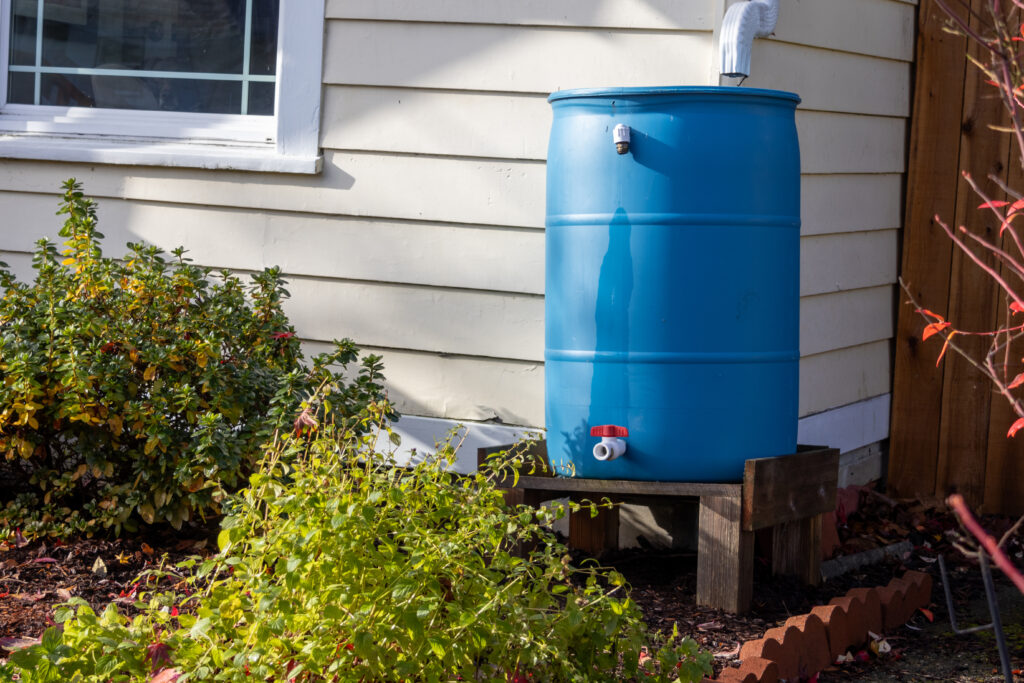Water scarcity is no longer a distant concern—it’s a present-day issue many households are actively addressing. One effective method is using greywater recycling systems. Greywater, which comes from non-toilet plumbing like sinks, showers, and washing machines, makes up a large portion of daily household wastewater. By using residential greywater recycling systems, homeowners can conserve water while lowering their utility bills. However, safety is crucial when recycling greywater, especially if you want to protect your family and garden. This blog explains how to safely use a greywater recycling system for homes, reduce environmental impact, and understand the greywater recycling system cost.
What Is Greywater?
Greywater is wastewater from household sources like bathtubs, bathroom sinks, and laundry—not including toilets or kitchen water. It may contain soap, dirt, hair, and other particles, but it’s generally safe for reuse in non-potable situations when managed properly. Installing greywater recycling systems can help redirect this water to irrigate your landscape. For those interested in sustainability, a greywater recycling system for homes is a practical solution.
Common Sources of Greywater
The main sources include shower water, laundry rinse cycles, and handwashing basins. These are considered “low risk” compared to water from kitchens or toilets. Residential greywater recycling systems are designed to capture this low-risk water and redirect it for reuse. Avoid using kitchen greywater due to its grease and food content, which can harm plants and carry health risks if reused improperly.
Health and Safety Considerations
Reusing greywater safely means avoiding contact with humans and edible plants. Always keep untreated greywater underground with sub-surface irrigation. Untreated water should never be stored for over 24 hours, as bacteria can quickly multiply. A filtration system for grey water significantly lowers these risks by removing particles and contaminants. Always consult a professional before altering any plumbing.
Choosing a Greywater System for Homes
There are several types of greywater recycling systems, from simple diverters to advanced treatment units. A basic system may involve a diversion valve that redirects water to your garden. More advanced systems use a filtration system for grey water followed by chlorination or UV treatment. When selecting a greywater recycling system for homes, consider both your water usage and garden size.
How Much Does a Greywater System Cost?
The greywater recycling system cost varies based on complexity. Simple DIY systems can cost around $150–$500, while professional installations range from $2,000 to $5,000. Although the initial cost may seem high, residential greywater recycling systems can pay off in reduced water bills over time. Also, local governments may offer rebates or incentives for installing such systems.
Filtration Systems for Greywater
Installing a filtration system for grey water helps eliminate harmful particles, bacteria, and chemicals. Filters range from mesh screens to more complex biological filters. Regular maintenance is essential to keep the system working properly. Efficient greywater recycling systems rely on proper filtration to extend the lifespan of your irrigation network and protect your plants.
Septic and Greywater Systems
Homes using septic tanks need to consider how their septic and greywater systems interact. Greywater should be diverted before reaching the septic tank to avoid overloading. In some cases, the addition of residential greywater recycling systems reduces strain on septic systems, extending their lifespan. It’s essential to check local regulations before diverting any water.
Best Practices for Recycling Greywater in Gardens
When recycling greywater, use sub-surface irrigation to avoid human contact. Only water ornamental plants, and avoid edible gardens. Rotate watering areas to prevent over-saturation and salt build-up in the soil. Check detergent labels for sodium and phosphate levels—these can be harmful to plants. With proper use, greywater recycling systems can safely maintain a healthy garden.
Maintenance Tips for Longevity
Keep your greywater recycling system for homes running efficiently by cleaning filters regularly, inspecting pipes for blockages, and ensuring no greywater enters stormwater drains. Avoid storing untreated greywater and check soil moisture levels before irrigating. Regular maintenance not only improves safety but also extends the functionality of both septic and greywater systems.
Legal Considerations and Local Regulations
Regulations vary depending on location, so always check with your local council or environmental authority. In many places, treated greywater recycling systems require certification. A licensed plumber is essential if you plan on modifying existing plumbing. Awareness of the law ensures your system remains safe, legal, and effective.
FAQs
Is greywater safe to use on all plants?
No. Greywater should not be used on edible plants or herbs. It’s best suited for ornamental plants and lawns. Using a filtration system for grey water can reduce potential harm, but caution is always advised.
Can greywater be stored for later use?
Untreated greywater should never be stored for more than 24 hours. Bacteria thrive in stagnant water. Treated greywater recycling systems can store water slightly longer, depending on design and regulations.
Does installing a system affect my septic tank?
Yes. Diverting greywater away from the septic system reduces its load. However, improper setup can lead to complications. Coordinating between septic and greywater systems ensures balanced and effective water management.
A Smarter Way to Reuse Water
Greywater recycling is more than a trend—it’s a sustainable lifestyle shift that benefits your home and the planet. With the right greywater recycling systems, you can safely reuse water for your garden, reduce utility bills, and support water conservation. Whether you’re considering a simple diverter or a more complex filtration system for grey water, remember that safety, maintenance, and legal compliance are crucial. Curious about what system suits your needs? Visit Hale Home Services today to learn more about making water work smarter in your home.

